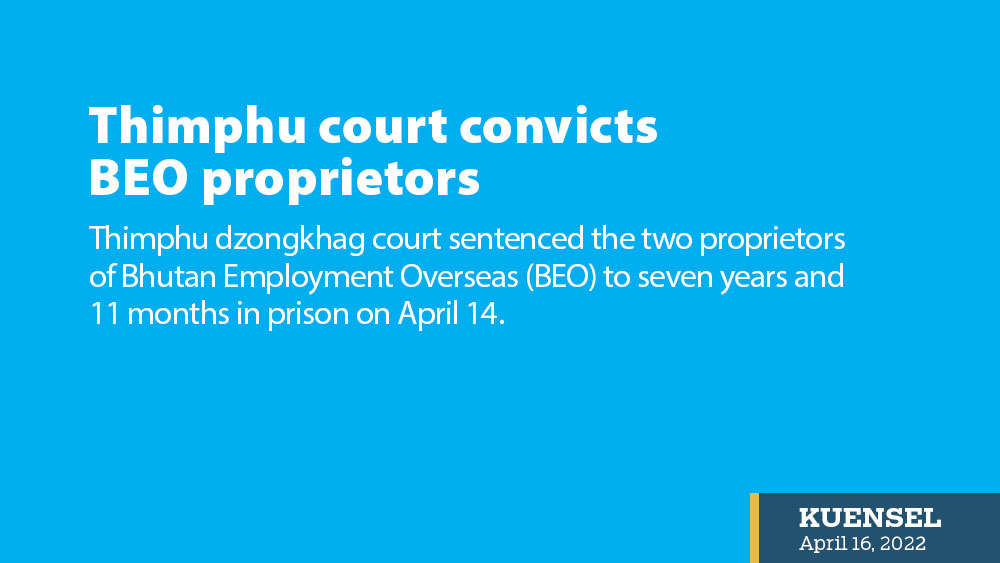Staff Reporter
Thimphu dzongkhag court sentenced the two proprietors of Bhutan Employment Overseas (BEO) to seven years and 11 months in prison on April 14.
The proprietors, Tenzin Rigden and Jurmey Tshewang, were found guilty of making bank false statements forging the seal and logo of a bank for 697 youth who went to Japan through the Learn and Earn programme. They were sentenced to five years in prison which is non-compoundable.
The court slapped the proprietors with two years and 11 months prison term each for the making of fake payslips for the guardians of the youth. They can pay in lieu of the prison term.
However, the charge of larceny by deception has been dropped after evidence to the contrary was produced before the court.
The charges against BEO employees who were involved in the preparation of documents, including the aforesaid fake documents, were withdrawn by the Office of the Attorney General (OAG).
According to a family member of one of the convicts, the proprietors are devastated by the court’s ruling. He said that their actions did not tantamount to forgery.
Both defendants in the court proceedings pleaded not guilty to the forgery charges the OAG submitted against them. They argued that the forgery comprises two key elements: intention and action. The intention must qualify as “evil”, one that causes injury or harm to the so-called “aggrieved” party. The intention, in this case, was to enable Bhutanese youth to study and work in Japan.
They submitted before the court that more than 350 of these youth are still in Japan working hard in a challenging environment and doing well, benefitting themselves, their families and the country at large.
Their lawyer also submitted that without such documents, which are now dubbed as “forged”, none of the youths would have been able to go to Japan in the first place.
Regarding the “action”, the documents in question were made in-house by the BEO staff on the “instruction” of the proprietors. This of course is not the right thing to do. However, one must not lose sight of the fact that the action did not cause any “harm” or “injury” to the bank whose letterheads were used to make the documents. The defence also claimed that there existed a widespread age-old practice of youths from other countries entering Japan by making the bank documents in the same manner and the BEO proprietors were in fact asked to do the same by their counterparts.
A family member also said that it is a shame that only the two proprietors who “only gave instructions to make the documents” were charged and punished. “It is unbelievable that parents and the youths who signed on these very documents and had prior knowledge about it are left out,” he said.
Kuensel learnt the defendants are going to appeal to the High Court.


